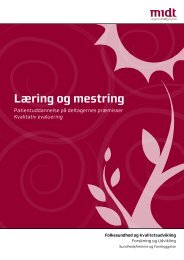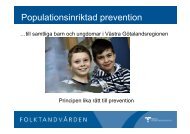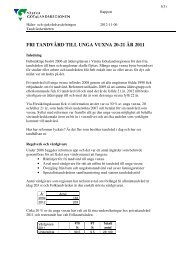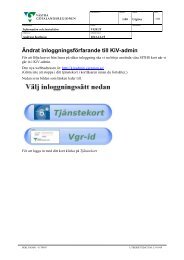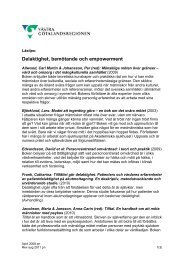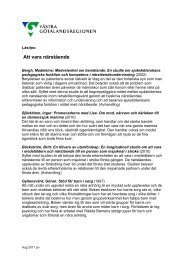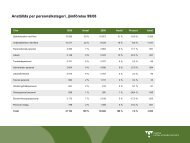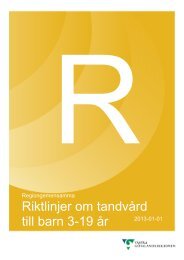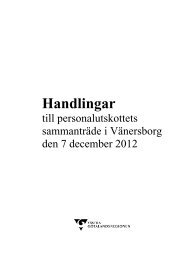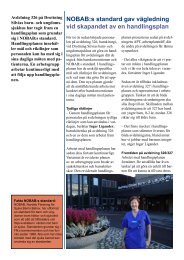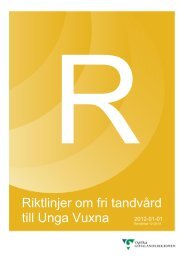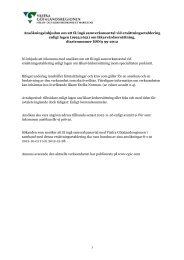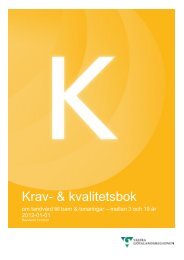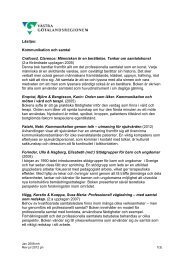Patientutbildning enligt Akermetoden - Västra Götalandsregionen
Patientutbildning enligt Akermetoden - Västra Götalandsregionen
Patientutbildning enligt Akermetoden - Västra Götalandsregionen
Create successful ePaper yourself
Turn your PDF publications into a flip-book with our unique Google optimized e-Paper software.
Abstract<br />
Introduction: Educational interventions to help patients with chronic diseases to handle<br />
their situation have, according to the SBU (Swedish Counsil on health technology<br />
Assessment), been going on in Sweden since the 1990’s. Generally speaking too few<br />
scientific studies on this topic have been undertaken to draw conclusions about costeffectiveness<br />
and to obtain results from the patients’ perspectives. The principles of the Aker<br />
method have been developed at the University Hospital of Aker in Norway. The term “<br />
helsepedagogikk”, health teaching, in this context implies opportunities for patients to learn<br />
more about their diseases through cooperation between healthcare professionals, the patients<br />
themselves and “erfarne brukere”, persons with experiences of receiving care. The Aker<br />
method involves an active learning process based on the patients’ own questions and<br />
experiences. The aim of the pedagogics is to induce informed choices and power to handle the<br />
life situation.<br />
Aim: The purpose of this study is to describe participants` experiences in the learning<br />
process, the Aker method.<br />
Method: The design of the study is empirically qualitative with a descriptive<br />
phenomenological approach. To answer the purpose data was collected via focus group<br />
interviews and individual in-depth interviews with participants who completed patient<br />
education during 2009-2010. The total number of interviewees was 16 comprising patients<br />
suffering from either stroke, heart-disease or kidney-insufficiency, all of which are chronic<br />
diagnoses.<br />
Conclusion: The essence of the experience is the importance of meeting other people in a<br />
similar situation and the shared knowledge exchange in the groups. The bottom line for the<br />
participants is to listen to others and to attain a broader perspective on their disease. The<br />
dynamic cooperation and the solidarity in the group is another important factor for the<br />
participants. Within the subject of patient education and medical education there are many<br />
unexplored areas. There is a need of further knowledge towards more patient-centered care<br />
where patients’ knowledge and experience are valued to a wider extent. This study can be<br />
seen as a pilot study for a phenomenological study in which data are analyzed according to<br />
Giorgi’s human scientific psychological method.<br />
Keywords: patient education, chronic disease, qualitative research, teaching methods,<br />
phenomenology, medical pedagogics



